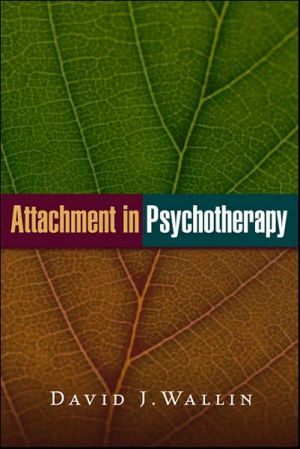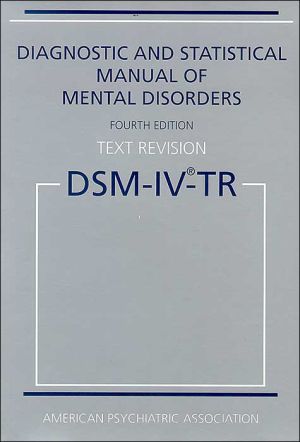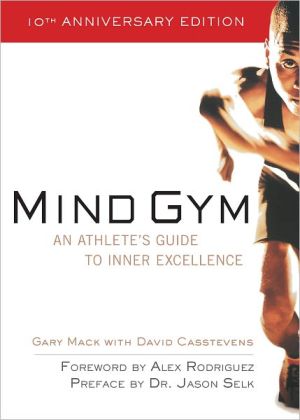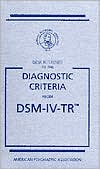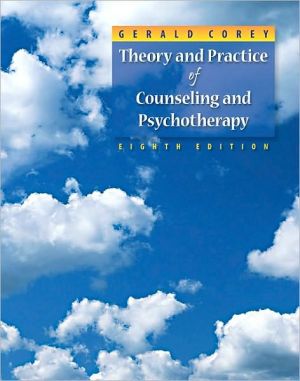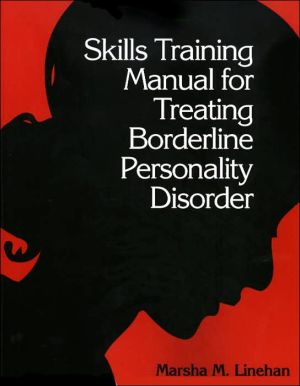Attachment in Psychotherapy
Translating attachment research and theory for clinicians, this eloquent book describes an innovative framework for adult psychotherapy that is grounded in what we know about childhood development. Advancing a model of treatment as transformation through relationship, the author integrates attachment theory with neuroscience, trauma studies, relational psychotherapy, and the psychology of mindfulness. Vivid case material illustrates how therapists can tailor interventions to fit the...
Search in google:
This eloquent book translates attachment theory and research into an innovative framework that grounds adult psychotherapy in the facts of childhood development. Advancing a model of treatment as transformation through relationship, the author integrates attachment theory with neuroscience, trauma studies, relational psychotherapy, and the psychology of mindfulness. Vivid case material illustrates how therapists can tailor interventions to fit the attachment needs of their patients, thus helping them to generate the internalized secure base for which their early relationships provided no foundation. Demonstrating the clinical uses of a focus on nonverbal interaction, the book describes powerful techniques for working with the emotional responses and bodily experiences of patient and therapist alike. Doody Review Services Reviewer:Gary B Kaniuk, Psy.D.(Cermak Health Services)Description:This book describes how attachment concepts can be applied with adults in psychotherapy, providing treatment recommendations and instructive case vignettes.Purpose:The author states, "Drawing on neurobiology, cognitive science, trauma studies, and Buddhist psychology as well as attachment theory and relational psychoanalysis, I aim to convey how therapists can make practical use of three key findings of attachment research. Accordingly, I focus on the therapeutic relationship as a developmental crucible, the centrality of the nonverbal dimension, and the transformative influence of reflection and mindfulness.Audience:The book is intended for all psychotherapists who treat adults, including clinical psychologists, psychiatrists, and clinical social workers. Students and residents also will find it informative. The author is a clinical psychologist in private practice who has been practicing, teaching, and writing for almost three decades.Features:A review of attachment theory and some of the historical figures who developed the concepts (Bowlby, Ainsworth, Main, and Fonagy, etc.) begins the book. The author focuses on three main findings of attachment research: co-created relationships of attachment are the key context for development; preverbal experience makes up the core of the developing self; and stance of the self toward experience predicts attachment security better than the facts of personal history themselves. The book is well written with nice case vignettes and discussion with three types of clients (the dismissing patient, the preoccupied patient, the unresolved patient). However, it is not the easiest book to read. Figures and/or tables would have helped to elucidate the material a little better.Assessment:This is the perfect guide for therapists who want to learn how to apply attachment concepts in psychotherapy. The author presents helpful insights which would be valuable to any practicing therapist, regardless of theoretical orientation. Obviously, therapists who hold to a psychodynamic approach would be able to gain even more. Although not easy reading, it is well worth the effort.
Attachment and Change 1Bowlby and Beyond 9The Foundations of Attachment Theory 11Mary Main: Mental Representations, Metacognition, and the Adult Attachment Interview 25Fonagy and Forward 43Attachment Relationships and the Development of the Self 59The Multiple Dimensions of the Self 61The Varieties of Attachment Experience 84How Attachment Relationships Shape the Self 99From Attachment Theory to Clinical Practice 113Nonverbal Experience and the "Unthought Known": Accessing the Emotional Core of the Self 115The Stance of the Self toward Experience: Embeddedness, Mentalizing, and Mindfulness 133Deepening the Clinical Dimension of Attachment Theory: Intersubjectivity and the Relational Perspective 167Attachment Patterns in Psychotherapy 191Constructing the Developmental Crucible 193The Dismissing Patient: From Isolation to Intimacy 211The Preoccupied Patient: Making Room for a Mind of One's Own 224The Unresolved Patient: Healing the Wounds of Trauma and Loss 242Sharpening the Clinical Focus 257The Nonverbal Realm I: Working with the Evoked and the Enacted 259The Nonverbal Realm II: Working with the Body 292Mentalizing and Mindfulness: The Double Helix of Psychological Liberation 307References 339Index 355
\ From The CriticsReviewer: Gary B Kaniuk, Psy.D.(Cermak Health Services)\ Description: This book describes how attachment concepts can be applied with adults in psychotherapy, providing treatment recommendations and instructive case vignettes.\ Purpose: The author states, "Drawing on neurobiology, cognitive science, trauma studies, and Buddhist psychology as well as attachment theory and relational psychoanalysis, I aim to convey how therapists can make practical use of three key findings of attachment research. Accordingly, I focus on the therapeutic relationship as a developmental crucible, the centrality of the nonverbal dimension, and the transformative influence of reflection and mindfulness.\ Audience: The book is intended for all psychotherapists who treat adults, including clinical psychologists, psychiatrists, and clinical social workers. Students and residents also will find it informative. The author is a clinical psychologist in private practice who has been practicing, teaching, and writing for almost three decades.\ Features: A review of attachment theory and some of the historical figures who developed the concepts (Bowlby, Ainsworth, Main, and Fonagy, etc.) begins the book. The author focuses on three main findings of attachment research: co-created relationships of attachment are the key context for development; preverbal experience makes up the core of the developing self; and stance of the self toward experience predicts attachment security better than the facts of personal history themselves. The book is well written with nice case vignettes and discussion with three types of clients (the dismissing patient, the preoccupied patient, the unresolved patient). However, it is not the easiest book to read. Figures and/or tables would have helped to elucidate the material a little better.\ Assessment: This is the perfect guide for therapists who want to learn how to apply attachment concepts in psychotherapy. The author presents helpful insights which would be valuable to any practicing therapist, regardless of theoretical orientation. Obviously, therapists who hold to a psychodynamic approach would be able to gain even more. Although not easy reading, it is well worth the effort.\ \ \ \ \ From the Publisher"As someone who bears witness daily to the suffering of the insecurely attached, I am deeply grateful for Attachment in Psychotherapy, a remarkable synthesis of scientific research, clinical observation and theory, and reflection on mindfulness. Wallin not only elucidates the vast empirical literature on attachment, but also with the clarity of a natural teacher and the wisdom of a seasoned clinician makes such findings relevant to the complex challenges of practice. Therapists of all orientations will find help here in fostering a sense of safety and in facilitating their clients' emotional growth."--Nancy McWilliams, PhD, Graduate School of Applied and Professional Psychology, Rutgers, The State University of New Jersey "No better introduction to the clinical application of attachment theory has yet been written."--Lewis Aron, PhD, Director, Postdoctoral Program in Psychotherapy and Psychoanalysis, New York University \ "Wallin's understanding of attachment work and his integration of attachment theory with other modern relational perspectives are quite impressive. People are always asking me what they can read about the clinical implications of attachment work, and now I know what to tell them. This book is an amazing accomplishment. It is definitely my favorite book on this topic."--L. Alan Sroufe, PhD, William Harris Professor of Child Development, University of Minnesota\ "John Bowlby would have been delighted with this book, which links the biological imperatives of attachment to the dialogues that define the self and the nature of key relationships. He would also have been delighted to see his theory articulated as a guide to psychotherapy in such an eminently readable manner. The use of attachment as this kind of guide is a rich vein that has just begun to be tapped. This book is a therapist's journey into that richness."--Susan M. Johnson, EdD, School of Psychology, University of Ottawa, Ontario, Canada "This timely book provides an important advance in the examination of the implications of attachment theory for psychotherapy. Synthesizing theory and research on attachment theory and affect regulation with recent developments in psychoanalysis, Wallin provides a rich conceptual scaffolding for understanding the role that the therapeutic relationship plays in the change process. He also provides an intriguing perspective on the potential contributions of mindfulness practice to the cultivation of a therapeutic stance. Theoretically sophisticated and clinically enlightening, this book will be of interest to clinicians of all persuasions."--Jeremy D. Safran, PhD, Department of Psychology, New School for Social Research "Simply the best integration of key advances in attachment theory and research and their applications to psychotherapy. Complex concepts are carefully elucidated and brilliantly illustrated with clinical examples. This book is an important reference for all clinicians and students. It is a vital resource for those who are interested in how progress in our understanding of attachment processes may be applied in a clinical context."--Peter Fonagy, PhD, Sub-Department of Clinical Health Psychology, University College London, UK "This book is a remarkable achievement--a very clear yet scholarly synthesis of the latest developments in attachment theory, intersubjectivity, social neuroscience, and mindfulness. The author layers these 'maps' onto the therapy experience, and then takes the reader through the territory to emerge with a new vision of therapy. Wallin is a trustworthy guide through the complexities of clinical work where the therapy relationship itself is the intervention. A 'must read' for psychotherapists who wish to remain on top of their field, and a rich resource for clinicians in training."--Christopher K. Germer, PhD, private practice, Cambridge, Massachusetts "Attachment in Psychotherapy advances psychotherapeutic method and theory through an innovative integration of new work in affect regulation and models of relationship. David Wallin offers a brilliant leap in realizing the clinical promise of attachment theory, a synthesis that should be required--and will be rewarding--reading for every psychotherapist."--Daniel Goleman, PhD, author of Social Intelligence \ "What a delight! Wallin has written an extremely insightful, broadly integrative, clinically applicable, and highly engaging book. Keeping his personal and clinical experiences coherently in mind and using them as examples, he synthesizes recent literatures on attachment theory and research, mindfulness, mentalization, metacognition, nonverbal communication, intersubjectivity, and mechanisms of therapeutic change. The book moves deftly from clear analyses of contemporary theoretical issues to specific, well-described clinical techniques that can be used with particular clients; for example, those with a particular adult attachment pattern. The book identifies diverse theoretical and empirical advances that, in Wallin’s skillful hands, fit together beautifully, deepening our understanding of the human mind, its relational context, and its transformation in psychotherapy."--Phillip R. Shaver, PhD, Department of Psychology, University of California, Davis\ "A well-written, easy-to-read, clinically relevant, and particularly pragmatic application of recent science to a variety of clinical problems."--Allan N. Schore, PhD, author of Affect Regulation and the Repair of the Self\ \ \ \ British Journal of Psychiatry"R.D. Laing opened one of his less enduring works with the warning: 'Few books today are forgivable.' Well, here's one to celebrate. If you practice psychotherapy and you read it, your patients stand to benefit. And, as an impressive synthesis of research and practice, it joins a handful of books that truly belong to this century rather than the previous one....We can be grateful that this book has arrived. It is much more than forgivable. It seems indispensable."--British Journal of Psychiatry\ \ \ \ \ Bulletin of the Menninger Clinic"Takes on the huge task of integrating many aspects of contemporary research theory with clinical practice....A good resource for experienced clinicians."--Bulletin of the Menninger Clinic\ \ \ \ \ Clinical Social Work Review"Wallin presents a thorough and research-based explanation of how attachment theory can explain change and growth within psychotherapy and, importantly, how counselors can use attachment theory to guide practice decisions....Wallin's book provides both an introduction and an in-depth examination of attachment theory and some of the therapeutic implications arising from this seminal and unfolding theory....Wallin organizes the book in an interesting and readable fashion....I heartily recommend [this book]. The writing is engaging and clear, and the author takes great care to support his arguments. Further, Wallin clearly shows the capacity to think in an integrative and holistic manner. I believe most readers will find that they have a deeper understanding and appreciation for attachment theory and how psychotherapy can positively modify insecure attachment styles. I appreciate how Wallin integrates theory with clinical work; his arguments are easy to follow and deserve respect....Readers can expect to stretch their thinking from reading this book; Wallin's approach is both interesting and digestible."--Clinical Social Work Review\ \ \ \ \ Psychoanalytic Social Work"Wallin nicely links attachment theory to other conceptual, spiritual, and clinical arenas, and illustrates complex concepts with relevant vignettes....Wallin's book is well written, and provides interesting elaboration on attachment based practice while integrating concepts from a variety of fields....It is highly recommended for mental health professionals."--Psychoanalytic Social Work\ \
